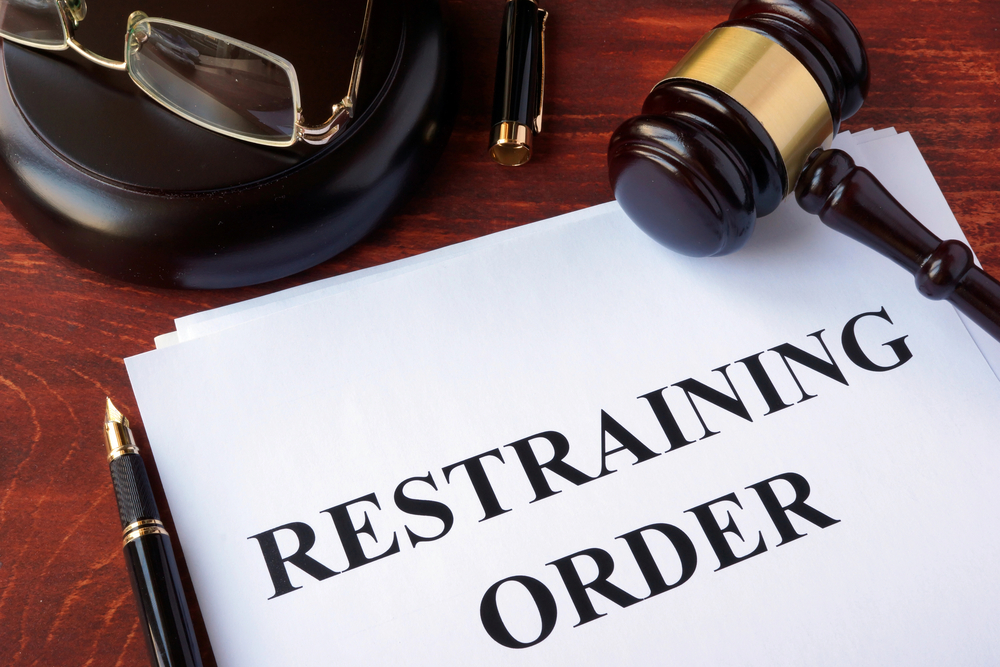Facing harassment, abuse, or threats is overwhelming, and protecting yourself is your top priority. One of the most effective legal tools available is a restraining order. While hiring a lawyer is beneficial in many cases, it is not always required. This guide will help you understand whether you need an attorney to file a restraining order in New Jersey, how to navigate the process, and what resources are available.
Key Takeaways
- Filing a restraining order does not require a lawyer, but legal support can be beneficial.
- There is no cost to file a restraining order in New Jersey.
- Resources like legal aid organizations and online guides can help with self-representation.
- Ziegler Law Group LLC provides experienced legal support to ensure your safety and peace of mind.

What is a Restraining Order?
What Is a Restraining Order?
A restraining order is a legal document issued by a court to protect an individual from harassment, abuse, or threats by prohibiting contact from the offender. In New Jersey, restraining orders fall into three main categories:
- Emergency Restraining Order: Issued immediately by law enforcement to provide short-term protection.
- Temporary Restraining Order (TRO): Granted by a judge for temporary relief until a hearing can be scheduled.
- Final Restraining Order (FRO): Issued after a court hearing if the judge determines it is necessary for long-term protection.
How to Get a Restraining Order Without a Lawyer
Filing for a restraining order on your own can be done, but preparation is key. Here is a step-by-step guide:
-
Obtain Necessary Forms
Visit your local courthouse or access forms online through the New Jersey Judiciary website. If you are in immediate danger, contact law enforcement, who can help initiate an emergency restraining order.
-
Complete the Forms
Fill out the forms with as much detail as possible. Include:
- Dates and descriptions of incidents.
- Evidence such as texts, emails, or photos.
- Witness names, if applicable.
-
File the Forms with the Court
Submit your completed forms to the court clerk. There is no filing fee for restraining orders in New Jersey, so the process does not cost money.
-
Attend the Hearing
The court will schedule a hearing where you must present your case. Bring all evidence and witnesses to support your claims.
Tips for Success
- Document Everything: Keep a detailed record of every incident, including dates, times, and descriptions.
- Stay Calm: Present your case clearly and confidently to the judge.

When to Consider Hiring a Lawyer for a Restraining Order
When to Consider Hiring a Lawyer for a Restraining Order
While filing a restraining order without a lawyer is possible, there are situations where legal representation is highly recommended:
Complex Cases
If your situation involves:
- Child custody disputes.
- Shared property or finances.
- Multiple violations or prior court cases.
An experienced attorney for restraining orders can help you navigate the complexities of the legal process and advocate for your best interests.
Emotional Support
Filing a restraining order can be emotionally taxing. A restraining order law firm offers not only extensive legal experience but also the support needed to handle stressful situations.
Resources for Self-Representation
If you choose to file without a lawyer, these resources can help:
- Legal Aid Organizations
- New Jersey Legal Services provides free or low-cost legal assistance to eligible individuals.
- Online Guides
- The New Jersey Judiciary website offers instructions and sample forms.
- Support Groups
- Community organizations often offer counseling and guidance for survivors of domestic violence.

Resources for Self-Representation
Challenges of Filing Without a Lawyer and How to Overcome Them
Understanding Legal Terminology
Legal language can be confusing. Use online resources or ask courthouse staff for clarification.
Emotional Preparedness
Dealing with legal procedures while under stress can be difficult. Consider counseling or speaking with a trusted support system to stay grounded.
Time Commitment
The process can take time, from filing paperwork to attending court hearings. Stay organized and allocate time to ensure you meet deadlines.
The Power of Protection: Key Statistics Supporting Restraining Orders
-
Reduced Risk of Violence
- Studies show that restraining orders reduce the risk of future violence by 70% when consistently enforced.
-
Increased Reporting of Violations
- Survivors who obtain restraining orders are 56% more likely to report violations, leading to increased accountability for offenders.
-
Peace of Mind for Survivors
- According to a survey by the National Domestic Violence Hotline, 81% of individuals reported feeling safer after obtaining a restraining order.
-
Legal Protections for Children
- In cases involving children, restraining orders provide legal safeguards for minors in 92% of filings that include them as protected parties.
-
Long-Term Effectiveness
- Research indicates that 60% of final restraining orders remain effective in preventing further contact over a five-year period.
-
Law Enforcement Support
- Police departments report that restraining orders simplify intervention and enforcement in 88% of domestic violence cases.
-
Victim Empowerment
- Victims who obtain restraining orders are 70% more likely to pursue additional legal remedies, such as child custody or financial support.
-
Reduction in Homicides
- The issuance of restraining orders has been linked to a 20% decrease in domestic violence-related homicides nationwide.
-
No Financial Barrier
- Filing for a restraining order in New Jersey is free, making it an accessible tool for 100% of individuals, regardless of income level.
-
High Compliance Rates
- Approximately 85% of offenders comply with restraining orders, leading to increased safety for survivors.
Frequently Asked Questions
-
Do you need a lawyer for a restraining order?
No, you can file for a restraining order without a lawyer. However, a lawyer can provide valuable guidance in complex cases.
-
How much does a restraining order cost?
In New Jersey, filing for a restraining order does not cost money.
-
What evidence is needed to get a restraining order?
Evidence such as text messages, emails, photos, medical reports, and witness statements can strengthen your case.
-
What happens if the restraining order is violated?
Violating a restraining order is a criminal offense. Contact law enforcement immediately if a violation occurs.

ZRE’s Vikki Ziegler Featured in NewsBreak Article
Conclusion: Do You Need a Lawyer for a Restraining Order?
Filing a restraining order in New Jersey is a process you can navigate on your own, but in complex or emotionally charged cases, hiring a restraining order law firm can make all the difference. Whether you proceed independently or with legal representation, the most important step is to take action to protect yourself and your loved ones.
Need help with a restraining order? Contact Ziegler Law Group LLC today at 973-533-1100 or Click Here to Schedule a Consultation. Our experienced attorneys are here to guide you through the process with care.






